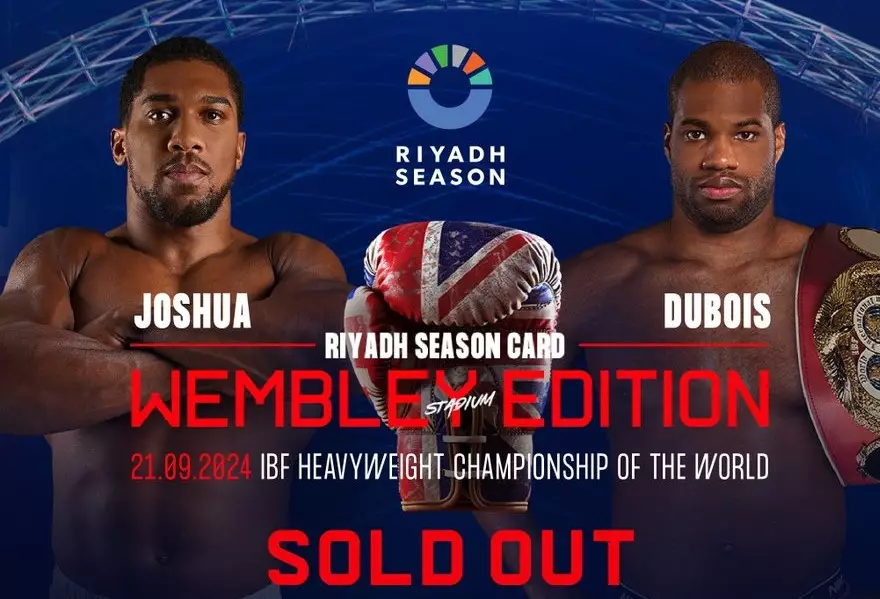The upcoming Pay Per View event between heavyweight boxing titans Anthony Joshua and Daniel Dubois, slated for September 21st, is making headlines not only for the combatants involved but also due to its remarkably low price of $19.99 for audiences in the United States. In an era where hardcore fans often confront skyrocketing costs, with many pay-per-view events frequently hitting near $100, this pricing strategy presents a refreshing alternative. By daring to charge less than the norm, promotional figures like Turki Alalshikh, the General Entertainment Authority for Saudi Arabia, are playing a pivotal role in attempting to reshape the landscape of boxing.
For boxing aficionados, the escalating costs associated with pay-per-view events have become a prevalent concern. This financial barrier not only limits access to high-stakes matches but also pushes some viewers toward illegal streaming options. Alashikh’s innovative approach to pricing suggests a growing acknowledgment of this issue within the industry. The willingness to provide fans with affordable options stands as a nuanced understanding of market dynamics and viewer engagement. The fundamental question becomes: can lower prices effectively increase viewership and foster a renewed interest in the sport?
Alashikh embodies a new vision for boxing, where accessibility coexists with high-caliber competition. By stating his desire to create a pay-per-view model that appeals to the broader fanbase, he evidences an urgent need for change in a sport often criticized for its exclusivity and inaccessible pricing. “If I give the fans good fights at a good price, then I will increase the fanbase,” he asserts, highlighting a drive for a sustainable model that prioritizes fans’ interests. As major boxing events migrate to Saudi Arabia, the region serves as fertile ground for exploring innovative promotional strategies.
Should Alashikh’s strategy prove successful, the ramifications could be extensive. A substantial increase in viewership might encourage networks and promoters, including the UFC, to rethink their pricing models. If boxing can deliver premium bouts at a fraction of the cost, the logic dictates that similar strategies might become irresistible in mixed martial arts and other combat sports. The prospect of redefining how audiences engage with the sport is tantalizing, especially as it could potentially dismantle persistent barriers that have alienated casual viewers.
In a sport long criticized for its failure to match the best against the best, the prospect of an affordable pricing model could incentivize promoters to prioritize high-caliber bouts. This is crucial for reviving the generational excitement that once characterized boxing. It can facilitate a shift in perception, potentially encouraging more fighters to step up and face formidable opponents, leading to an environment that rewards talent and ambition.
Alashikh’s initiative underscores a broader regulatory shift concerning pay-per-view events. Stakeholders are beginning to recognize that the financial health of boxing hinges on transforming the fan experience. By making fights more accessible, boxing not only nurtures its existing audience but also lays the groundwork for attracting new fans who might have hesitated to engage with a sport historically viewed as elitist. The role of government and investment bodies in sports entertainment is evolving, and boxing is at the forefront of this transformation.
The decision to offer the Joshua-Dubois fight at a dramatically reduced pay-per-view rate encapsulates a transformative potential that could reshape the boxing landscape. The emphasis on affordability is more than just a marketing ploy; it represents an acute awareness of the issues plaguing the sport today. If successful, this initiative may not only demonstrate how reduced costs can enhance viewer engagement but might also prompt a paradigm shift in how the sport operates. By creating an environment where fans are drawn back into arenas—both physical and virtual—boxing could once again embrace its status as a celebrated spectacle, rather than niche entertainment.


Leave a Reply